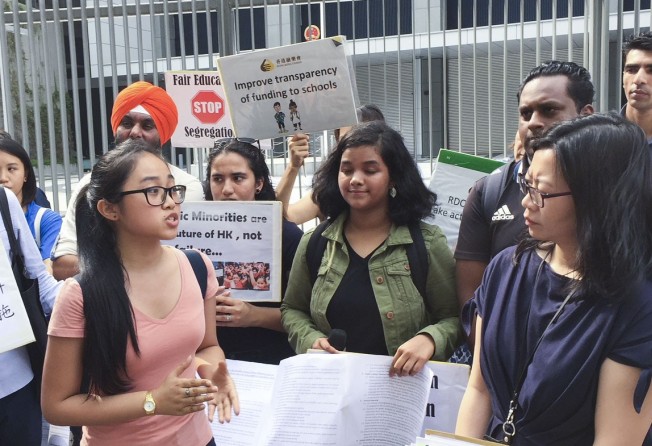Pupils from ethnic minorities in Hong Kong are not getting equal opportunities

December 10 was Human Rights Day. When we talk about education as a human right, people often say it’s not an issue in Hong Kong. Yes, most children go to school, but not everyone is provided with an equitable education without discrimination.
It is a fact that Hong Kong’s education system and curriculum favour those who speak Chinese as a mother tongue. Even when ethnic minority children are eager to learn the local language, it is difficult for them to achieve similar results as their Chinese peers.
Muneeba is an eight-year-old Hong Kong Indian girl. Two years ago, she started primary school and was automatically put in the Chinese class for non-Chinese students where she was taught a very basic level of Chinese, compared to that taught to her Chinese peers. She fears that this will affect her future academic and career choices.
Eleven-year-old Icy, who is of Filipino descent, shares a similar story. When she first started at a Chinese kindergarten, she couldn’t communicate with her Chinese classmates because Cantonese is not her first language. In primary school, it becomes harder to make friends because she didn’t speak good enough Cantonese and her classmates are sometimes insensitive. She feels rejected. She hopes non-Chinese children can be taught Chinese in a better way so they learn the language and fit in.
“We are also the future of Hong Kong,” says Icy.
Iqra, who is in Form Five in a former “designated school”, says that it wasn’t her choice to study in a racially segregated environment. She realises over the years that the level of Chinese she learned is not adequate for her to communicate with local Chinese, nor will it be enough for her to secure a job of her choice. Her younger brother, on the other hand, attends a mainstream Chinese school. Yet, without an appropriate curriculum, he struggles not only with his Chinese lessons but also with all the other subjects that are taught in Chinese.
These children are not alone in their struggle and ambition, in fact their experiences are representative of the problems faced by the larger ethnic minority student population. Education is a basic human right.
Will giving ethnic minority students equal education opportunities be a resolution for the government in 2018 or will we continue to hear these unhappy stories year after year?
Phyllis Cheung, executive director, Hong Kong Unison